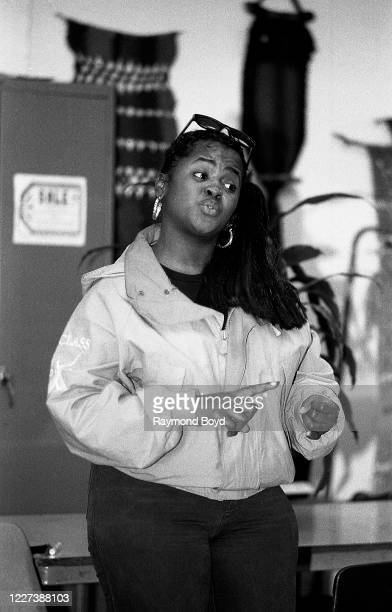
So now the sincerity—the SINCERITY of all of the programs and education must be questioned, indicted and convicted. Because the bottom line is that America is not, and has never tried to produce African-Americans who are functional, self sufficient, who understand their politics, their economics and their relationship to the world’s politics and the world’s economics.
-Sista Souljah
In 1992, Eleven panelists made their appearance in a (roughly) two hour episode of Phil Donahue titled “The Issue is Race: A Crisis in Black & White.” I vaguely remember this episode as a child, mainly because of a young Sista Souljah and how in tune I was with her. Before I go on, I have to tell you all that I have always, and I do mean always, I have always wanted to be a journalist. I can vividly remember me sitting at the table in my Nana’s kitchen reading the cereal box the same way newscasters read teleprompters; I have loved to read and write since the 3rd grade (shout out to Mrs. Bowen and Mrs. Hart, my elementary teachers that kept me motivated,) and studied Vibe and The Source magazine like I was an actual editor. I idolized Danyel Smith, Peter Jennings and Barbara Walters and Ed Murrow, as well as my local news reporters Sheila Allen Stevens, Ukie Washington, Jim Gardner, Lisa Thomas Laury, Edie Huggins, Pat Ciarrocchi, and a host of others. So when I tell you that I was in tune with Sista Souljah at 6 years old, understand that I’m 100 with my shit.
I have since re-watched this Phil Donahue episode, and when I tell you it sparked a flame in me I thought I’d lost, I mean it. I have always been passionate about journalism and writing, but re-watching this episode pinpointed my why. It’s because we need journalists and motivational speakers. We need people to tell our story and how we make it, how we living, from our perspective. Understand the italicized our is to put emphasis on the importance of us, as African-Americans, because even now, almost 30 years later, we are still having these conversations about how we can better ourselves. There are studies, reports, graphs, surveys and charts of data on us, but rarely does anyone question HOW these things come to be. Like, ok, you’re studying black men and women or following black students and all that, but are we studying HOW they got to be in the need for assistance or destitution? Sista Souljah hit the nail on the head. America, as a whole, has never truly cared about the well being of the black slaves they’ve freed.
There is a quote from a scene in the movie “Trick Baby,” [1972,] where a bunch of white men are sitting at a table discussing the advancement of blacks, and what role that may or my not play in the future of America:
“You know we have to move them up, if we leave a smart one in the ghetto, he might develop into a leader against us. If we raise him up into white society we neutralized. He feels compelled to try to act like us, he loses his identity.”
Despite being categorized as “blaxpoitation” (blaxpoitation: the exploitation of blacks as it regards to stereotypes in film) and fiction, the validity of these words rings true in the history of our most prominent leaders and community as a whole. Yes, some of us do “make it out of the hood,” but have we really made it?
I too, like Sista, am educated and sustained thanks to the welfare programs and government funding provided by America, but what I didn’t get from these programs was a sense of self and an economical education to better the generations to come after me. The elders of my generation that survived off of these programs did their best to breed us keep us as the best versions of themselves, hard working and grounded, but what they did not and could not give us, was the economical advances of our white counterparts, at no fault of their own. They had their own agenda and battles to fight, and as a 35 year old woman in 2021, I can’t imagine what it was like living back then and having to do all of that and raise children. What I can say is that we are truly in a position to at least educate the new school, to put them up on game. I encourage you all to watch the full YouTube episode (link provided) and hear the panelists for yourselves. It was both educational and informative, and a forgotten gem that needs to be shared.
I’m grateful to Sista Souljah for reigniting my flame and taking me back to my roots. It’s on my heart to end this by saying that you all should go home, the home inside yourselves, and find your passion. Go in deep and find what makes you happy. If you have it in your hands right now, make sure that you nurture it, and keep that fire burning.
Peace,
April Bee
“The Issue is Race: A Crisis in Black & White”


